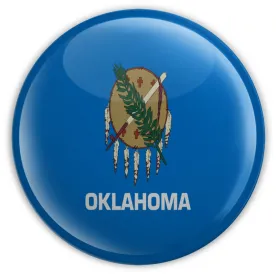Oklahoma is the latest to join states like Florida in placing restrictions on telephonic sales calls in the wake of the United States Supreme Court’s decision in Facebook v. Duguid, 141 S. Ct. 1163, 1167 (2021), which significantly limited the application of the Telephone Consumer Protection Act (“TCPA”) to live calls and text messages. These so-called “mini-TCPA” laws establish varying degrees of liability, but the Oklahoma Telephone Solicitation Act of 2022 (“OTSA”) largely mimics the stringent Florida Telephone Solicitation Act (“FTSA”).
The Oklahoma law prohibits the use of an “automated system” to make a “commercial telephonic sales call” without the “prior express written consent” of the “called party.” This new law, which includes a $500 statutory damages provision, takes effect on November 1, 2022.
The OTSA’s definition of dialing technology is potentially broader than the TCPA’s “automatic telephone dialing system” definition. Like Florida’s FTSA, the OTSA applies to “commercial telephonic sales calls” that involve “an automated system for the selection or dialing of telephone numbers or the playing of a recorded message when a connection is completed to a number called” (emphasis added).
While the statute provides certain definitions — like for “called party,” the statute does not define terms like “prior express written consent” and “signature.” More concerning, terms like “automated system” and “commercial telephonic sales call” have no definition, meaning courts and litigants will be the first to interpret these naturally vague terms. Furthermore, the failure to define “commercial telephonic sales call” will give rise to efforts from the plaintiffs’ bar to sweep in a potentially broad array of calls that may not have direct solicitation as a goal or constitute advertisements by any conventional understanding.
The OTSA prohibits “more than 3 calls in a 24-hour period” on the same subject matter or issue, as well as all telephonic sales calls between the hours of 8:00 p.m. and 8:00 a.m. It also proscribes tactics that a telephonic solicitor may use to mislead answering parties, such as intentionally preventing the transmission of the solicitor’s name or number, using technology that deliberately displays a different caller identification number, or altering the voice of the caller. However, it does permit a company to substitute the name of the seller on behalf of which a commercial telephonic sales call is placed and the seller’s customer service telephone number, which is answered during regular business hours, for the name and telephone number used in or billed for making the call that will appear through caller identification.
Critically, although prior express written consent is the only stated exception permitted for automated commercial telephonic sales calls, the OTSA also lists a variety of exemptions in a separate provision. This includes: calls made for certain noncommercial purposes (like religious, charitable, etc.), calls where there is no major sales presentation during the call and where no sale is made on the call, calls made by certain financial institutions, calls made by licensed insurance brokers, B2B calls, calls made to a recipient with an established business relationship, calls by certain retailers meeting a variety of prerequisites, and calls by certain realtors. In all, there are 26 enumerated categories of exemptions.
Finally, the Oklahoma law expressly allows for a private right of action to enforce these provisions. The potential damages are the usual $500 per violation, which can be trebled for willful or knowing violations. There is no indication that attorneys’ fees may be awarded under the law.
Georgia and Washington have also introduced similar legislation that may soon become law. Even though Facebook helped alleviate many concerns for businesses, companies should ensure that they meet an applicable exemption in each state they contact customers in or have appropriate express written consent to contact numbers. The Oklahoma law will go into effect on November 1, 2022.




 />i
/>i

